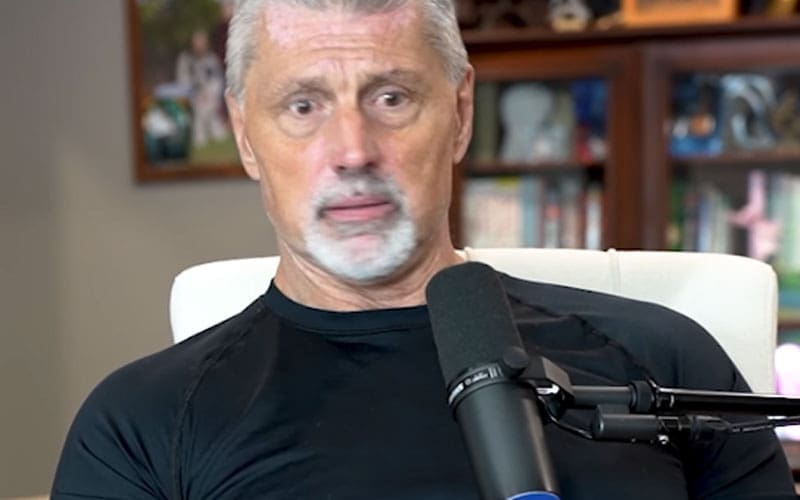Steve Blackman’s tenure in WWE didn’t conclude with a traditional farewell match or a retirement tour. The former hardcore champion recently shared with Chris Van Vriette the reasons behind his departure from WWE, revealing that arrests at the Canadian border derailed the momentum of his tag team, which ultimately led to critical neck surgery that changed his life.
At that time, Blackman was gaining traction in a tag team alongside Brian Christopher, and things seemed to be falling into place. Blackman recounted that towards the end of the 13 months before he left, he and Christopher were successfully working as a tag team, even with Trish’s involvement boosting their dynamic. Their plan was to compete for the WWE Tag Team Championship and hold the titles for the following 13 months. However, their push came to a halt after an incident at the Canadian border.
Following the collapse of their storyline, Blackman approached WWE management to address severe migraines and persistent neck problems that had plagued him for years. Management assured him that even if he took time off for surgery, he could return to wrestling. Unfortunately, recovery was difficult—after surgery, Blackman experienced worsening atrophy in his right arm, which left him unable to lift weights or perform basic exercises, mentally wearing him down over a year-long struggle.
Determined to regain his strength, Blackman built a home gym in his brother’s basement and pushed through the challenges. After nearly a year of consistent effort, he finally saw improvement in his arm’s function. In the end, Blackman’s departure from WWE was not a quiet exit but a forced break due to physical setbacks and storyline disruptions. Known as “Lethal Weapon,” he had to make the hard decision to step away from the ring, but stayed true to his fighting spirit throughout.
Fan Take: This revelation about Steve Blackman’s career shows the unseen hardships wrestlers endure behind the scenes, reminding WWE fans how fragile careers can be. It also highlights the importance of perseverance and medical support in sports entertainment, potentially inspiring better care and planning for athletes wrestling with injuries.













